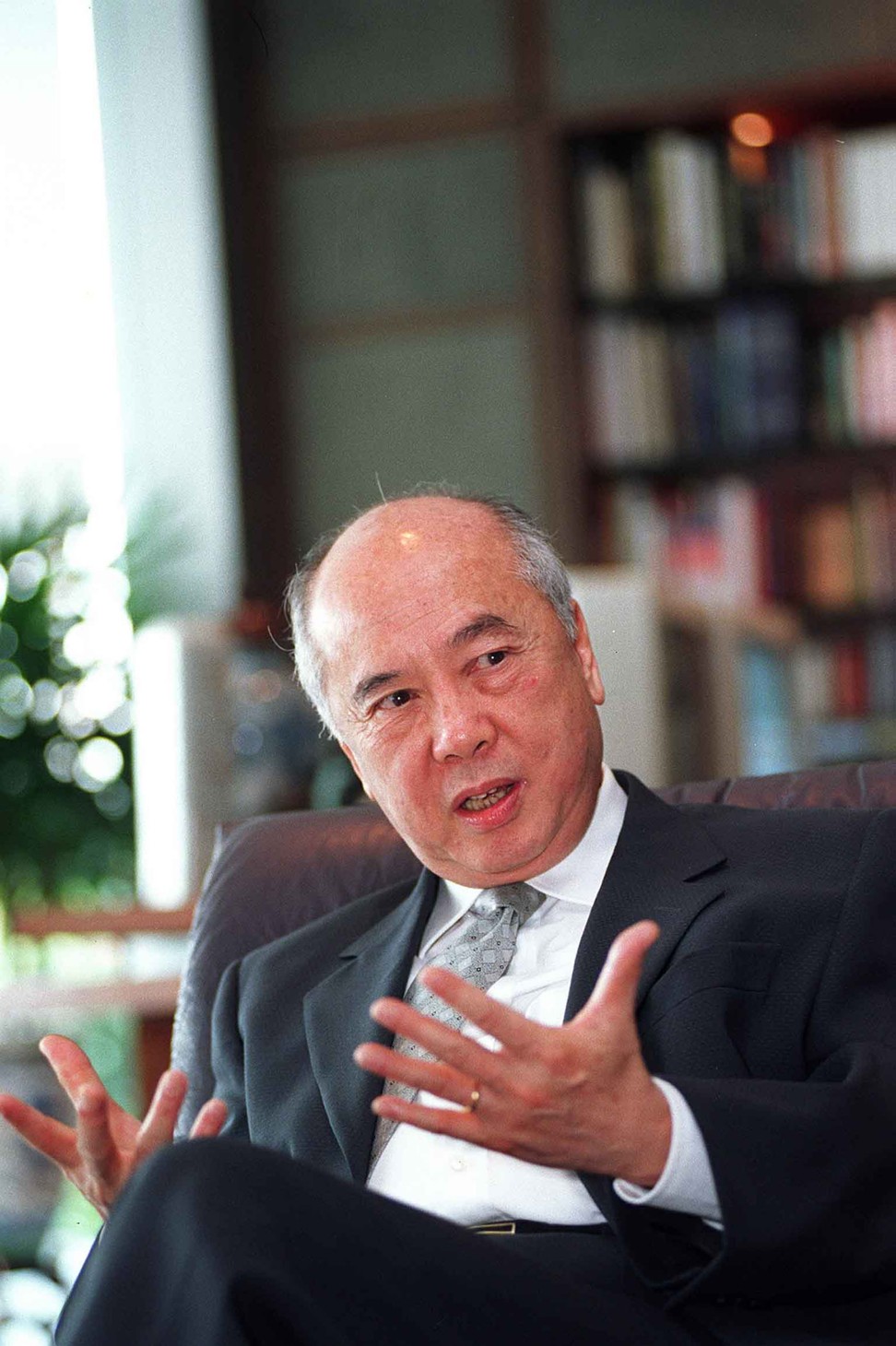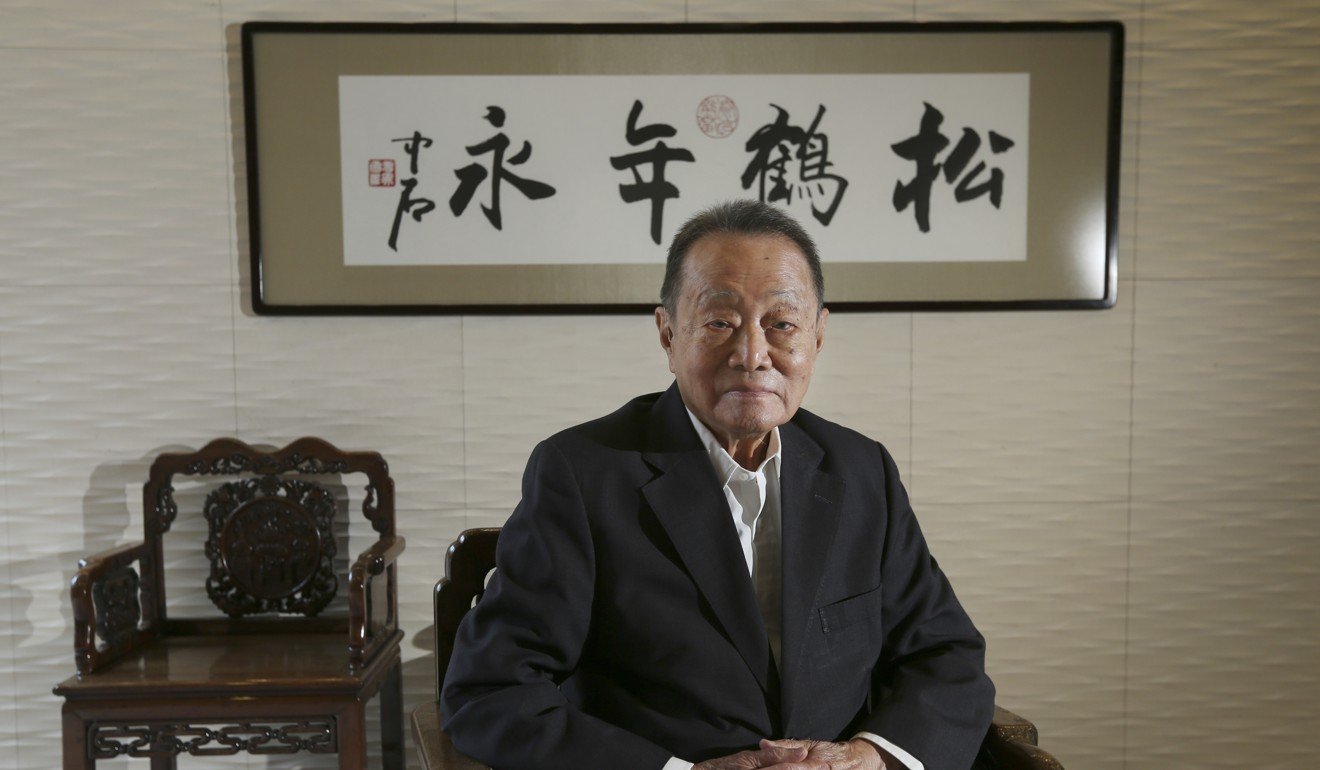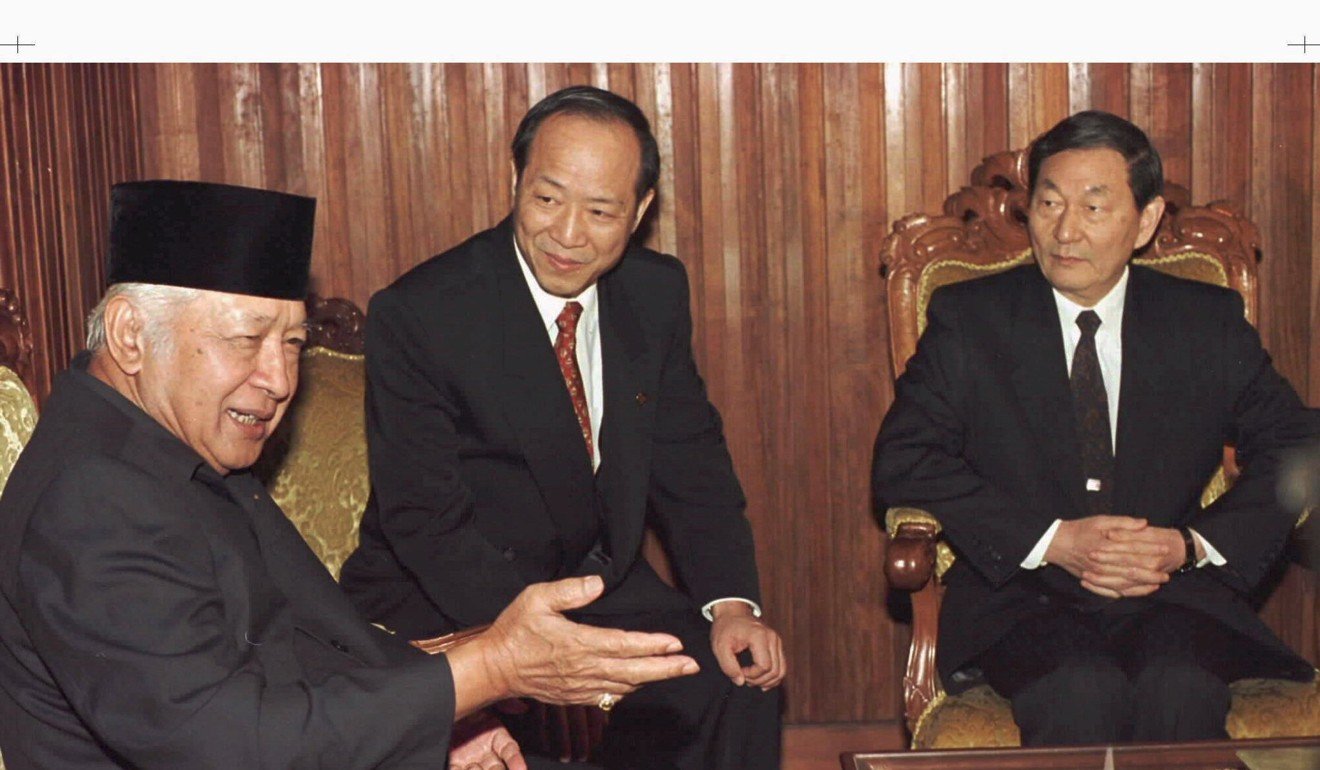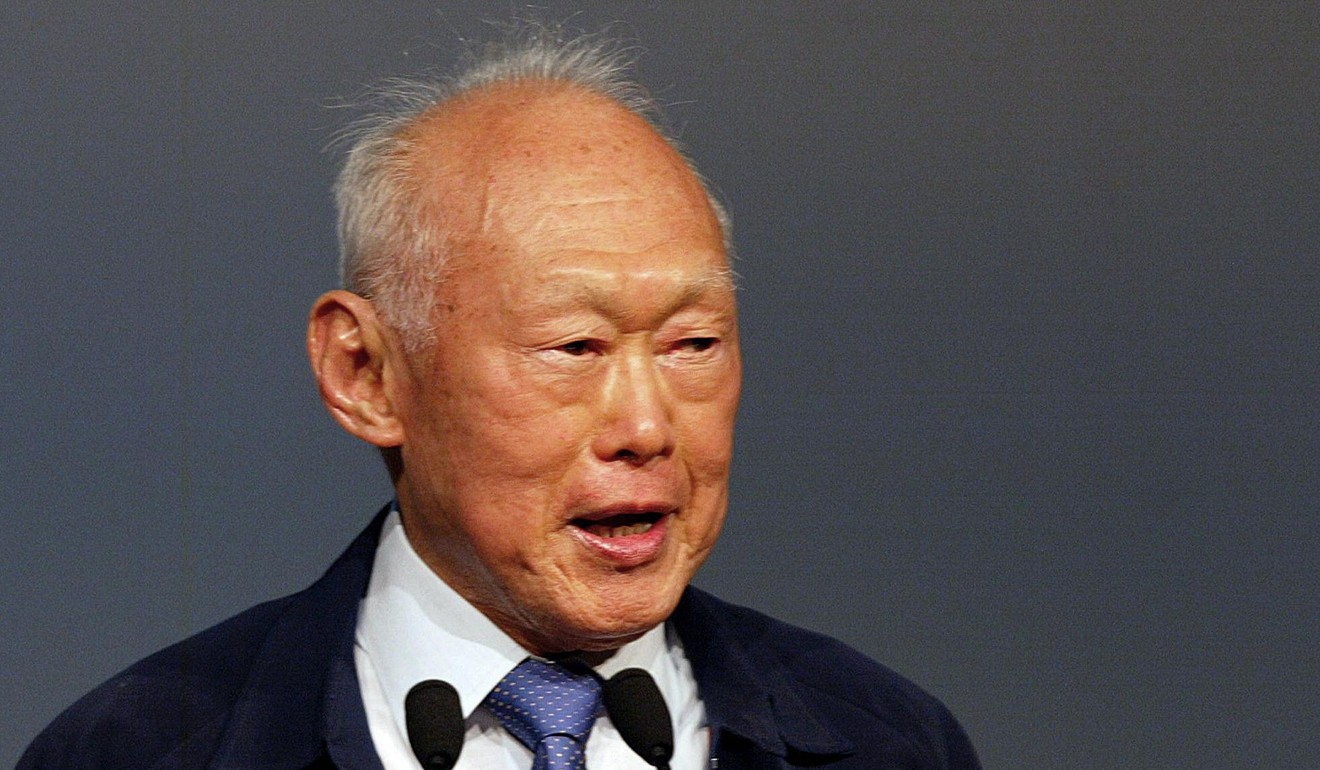CHIENSE - the most amazing economic ants on earth: the Robert Kuok memoirs
Tan KW
Publish date: Fri, 01 Dec 2017, 04:57 PM
In the fourth extract of Robert Kuok’s memoir, he considers Chinese immigrants. Not only are these unsung heroes hungry, eager and willing to ‘eat bitterness’ – they have cultural strength in the marrow of their bones
UNSUNG HEROES
The overseas Chinese made enormous contributions to Southeast Asia. They are the unsung heroes of the region: the poor men and women who migrated and blazed trails into the jungle, accessing the timber wealth; Chinese workers who planted and tapped rubber, who opened up the tin mines, who ran the small retail shops. It was the Chinese immigrants who tackled these Herculean tasks, and created a new economy around them. The British were good administrators. Many of them in private enterprise were absentee landlords, sitting in boardrooms or plush offices in London, Singapore or Kuala Lumpur. It was the Chinese who helped build up Southeast Asia. The Indians also played a big role, but the Chinese were the dominant force in helping to build the economy.
The transplanted Chinese were born entrepreneurs. The bulk of the overseas Chinese in Southeast Asia have their roots in the coastal towns and villages of Fujian and Guangdong provinces – and these have been blessed with some of the best entrepreneurial genes in the world. They came very hungry and eager as immigrants, often barefooted and wearing only singlets and trousers. They would do any work available, as an honest income meant they could have food and shelter. Chinese entrepreneurs are efficient and cost-conscious. When they search for foreign hardware and expertise, they know how to drive hard bargains. They work harder than anyone else and are willing to “eat bitterness”, as the Chinese say. The Chinese are simply the most amazing economic ants on earth.
In the Ming dynasty, the Chinese traded and explored around the South China Sea and the Indian Ocean. But, until the middle or latter part of the nineteenth century, the movement of people was only a trickle. Colonisation opened up Southeast Asia. The Europeans brought a semblance of law and order to the region and opened up rubber, mining and trading operations. Millions of Chinese, a tsunami of human migration, went south in search of better opportunities. The majority of overseas Chinese are moral and ethical people who practice fair play and possess a sense of proportion. I will concede that if they are totally penniless, they will do almost anything to get their first seed capital. But once they have some capital, they try very hard to rise above their past and advance their reputations as totally moral, ethical businessmen.

I have not come across any people as loyal as the Chinese. The Japanese have a kind of loyalty, but it’s an uncritical, bushido type of loyalty: they are loyal even if the boss is a skunk. Unlike the Japanese, every Chinese is highly judgmental, from the most educated to the uneducated. In every Chinese village and community, moral values are drilled into each child during his or her family upbringing. They are a very clueful people. They may have lived in a village or small town in China and come to Southeast Asia totally ignorant of the world, but they picked up ideas and strategies very quickly.
If there is any business to be done on earth, you can be sure that the Chinese will be there. They will know whom to see, what to order, how best to save, how to make money. They don’t need expensive equipment or the trappings of office; they just deliver.
If you look at the present generation of achievers in Hong Kong – men like Li Ka-shing of Cheung Kong, Cheng Yu-tung of New World, Li Shau-kee of Henderson Land, the late Kwok Takseng of Sun Hung Kai Properties – they all came from the school of hard knocks. Not one of them went to college. Since I was mainly brought up in the English-speaking world, I am almost an outside observer of the ways of China-born Chinese businessmen who are steeped in the Chinese language and culture.
I can tell you that Chinese businessmen compare notes every waking moment of their lives. There are no true weekends or holidays for them. That’s how they work. Every moment, they are listening, and they have skilfully developed in their own minds – each and every one of them – mental sieves to filter out rubbish and let through valuable information. Good Chinese business management is second to none; the very best of Chinese management is without compare. I haven’t seen others come near to it in my 70-year career.

This doesn’t mean to say that Chinese firms are the wealthiest or the biggest in the world. If you take companies such as GE, or businessmen like Bill Gates or Warren Buffett, their successes and wealth dwarf that of Chinese businesses. But Americans operate in the largest economy in the world, caressed by political and social stability, a strong legal system and generally sound institutions. The overseas Chinese in Southeast Asia operate in a much less benevolent environment. Moreover, they flourish without the national, political and financial sponsorship or backing of their host countries. In Southeast Asia, the Chinese are often maltreated and looked down upon. Whether you go to Malaysia, Sumatra or Java, the locals call you Cina – pronounced Chee-na – in a derogatory way.
Around the world, I have seen benevolent governments sponsor and even financially aid their nations’ businessmen so that they can compete overseas. It’s true in the US, Britain, France, Germany, Japan, Korea and Taiwan. National banks come to their citizenry’s aid; import-export banks subsidise their exports. In the commodity trade, the French and British governments and banks stand proudly behind their commodity brokers, who have lines of credit that I can only dream of. If the commodity traders’ capital is US$20 million, they receive US$200 million of credit; while if we have US$20 million of paid-up capital, we can barely hope for credit of US$20 million.
Malaysia-Singapore Airlines, Siamese twins set for separation: the Robert Kuok memoirs
When I invested in Sucre et Denree in Paris, I was astonished at the enormous trade facilities Serge Varsano was receiving from the French banks. The Chinese have no fairy godmothers (I exclude here the type of Chinese who connive with leaders peddling cronyism, and therefore rise and fall with such leaders.) Yet, despite facing these odds, the overseas Chinese, through hard work, endeavour and business shrewdness, are able to produce profits of a type that no other ethnic group operating in the same environment could produce.
A GREAT CULTURAL STRENGTH
Why did the overseas Chinese survive, adapt and flourish in Southeast Asia? I say the answer lies in the great cultural strength of the Chinese. When they left their homeland, the overseas Chinese retained the culture of China in the marrow of their bones. I remember my father had coolies who, after humping numerous bags of rice, stank of sour sweat; their clothes were not properly laundered and they couldn’t afford to bathe with perfumed soap. But they were decent human beings at heart and they knew moral values. As a child of three or four years old, I would sometimes sit on their laps and they would regale me with stories of their days in China. Recollecting those stories, I would say they were very cultured people. They knew what was right and what was wrong. Even the most uneducated Chinese, through family education, upbringing and social environment, understands the ingredients and consequences of behaviour such as refinement, humility, understatement, coarseness, bragging and arrogance.
I remember being invited to a brainstorming seminar in Jakarta sponsored by their Centre for Strategic and International Studies, headed by General Ali Mutorpo, Suharto’s head of intelligence. Jakarta was just beginning to stand on its own feet under Suharto. I was interested in further developing my business in Indonesia, and here was a chance to get to know the leaders and to take the economic and political pulse of Indonesia. So I attended.

About thirty of us sat around a big oval table. From Malaysia, there was Ghazali Shafie and myself. From Singapore, there was Devan Nair, who later became President of Singapore. The topic of one session was economic development. When it came to my turn, I spoke into the microphone in front of me: “Gentlemen, I have heard a lot already today from my peers about how Indonesia should develop. Many of you say that we should bring in the multinationals of the world and draw upon their strength to bring up the nation. I beg to differ. European and American multinationals, with their bulldozer-type attitude and mentality, will succeed. I have no doubt of that. But they will also import high inflation and inflationary practices that will enter your bloodstream, into the very marrow of your bones. You will never shake it off! This nation is very poor and cannot afford that style of management.”
I continued, “I want to speak today about the Southeast Asian Chinese. The vast majority of overseas Chinese are decent Chinese. If you go into the smallest Malay kampongs in my country, Malaysia, you will find that a Chinese shopkeeper has set up a tiny provision store. His whole shop may be only 200-300 square feet, but it will be stocked with all the necessities required by that community. If it’s a fishing village, there will be many tins of biscuits and canned foods, flashlights and batteries – the food and essentials to keep a fisherman provisioned out at sea for a few days.” “These men are playing sterling roles everywhere.” I stressed. “They are entrepreneurs blessed with business brains, though many of them lack financial backing. The mark-up on the goods they sell is very small; thus, they play a vital role in the chain of distribution.”
I returned to the subject of Indonesia: “Should not the leaders of this brand-new Indonesian nation harness more of the Chinese entrepreneurs’ energies to develop the country? The Chinese can do it, and they will do it economically, not the bulldozing, multinational way. Use the overseas Chinese, shoestring-economy style and build up your economy like that. That’s my plea.”
A FEW BAD APPLES
I concluded with this: “Now, before I finish, I want to state one strong caveat. Some of these overseas Chinese will become very big crooks, and if you let them run rampant they could ruin your nation. Therefore, it is vital that you also build up an executive monitoring arm, one armed with teeth. What I am saying is that in a laissez-faire economy, you must let business develop freely; but at the same time you must have a very well-trained and highly disciplined monitoring arm. Where there is abuse and crimes being committed, you must come down very fast and very hard and punish the crooks severely. You should make examples of them so that the honest Chinese will help your country and the dishonest ones will be deterred.”
China’s communists, devils to friends for Malaysian PM Tunku: the Robert Kuok memoirs

Later, when I went out to the washroom, I passed a room adjoining our meeting room in which tape recorders were whirring. So what I said – what everyone said – was recorded. In the ensuing years, Indonesia (and most other countries in the region) didn’t heed my warning about the need for watchdog institutions with bite. The decent Chinese have helped to build up Indonesia, Malaysia, Thailand and the Philippines, and made these countries what they are today. But you also had the rise of the unscrupulous and ruthless Chinese, who in turn have devastated many parts of Southeast Asia.
Why were these people allowed to wreak havoc? It is because the leaderships have been weak. If the leaders were strong, all these devils would have disappeared overnight. Singapore had the same number of Chinese crooks, but you try and find one today. They are all hidden, camouflaged, or dormant. The crooks were held on steel leashes by two hands: Lee Kuan Yew’s left hand and Lee Kuan Yew’s right hand. With the unsavoury elements under control, look what Singapore has been able to accomplish by harnessing the energies of the overseas Chinese. ■
Robert Kuok, A Memoir will be available in Hong Kong exclusively at Bookazine and in Singapore at all major bookshops from November 25. It will be released in Malaysia on December 1 and in Indonesia on January 1, 2018
http://www.scmp.com/week-asia/opinion/article/2121085/chinese-most-amazing-economic-ants-earth-robert-kuok-memoirs
http://www.scmp.com/week-asia/opinion/article/2121085/chinese-most-amazing-economic-ants-earth-robert-kuok-memoirs
More articles on Good Articles to Share
Created by Tan KW | Dec 15, 2024
Created by Tan KW | Dec 15, 2024
Created by Tan KW | Dec 15, 2024
Created by Tan KW | Dec 15, 2024




















